News & Stories
2016
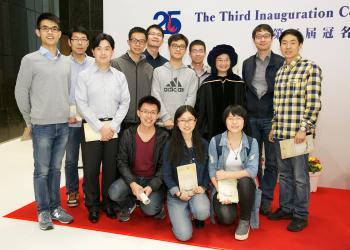
News
HKUST Develops Tiny Lasers that Open New Era for Light-based Computing
Researchers at The Hong Kong University of Science and Technology (HKUST) have fabricated microscopically-small lasers directly on silicon, enabling the future-generation microprocessors to run faster and less power-hungry - a significant step towards light-based computing.
The innovation, made by Prof Kei-may Lau, Fang Professor of Engineering and Chair Professor of the Department of Electronic and Computer Engineering, in collaboration with the University of California, Santa Barbara; Sandia National Laboratories and Harvard University, marks a major breakthrough for the semiconductor industry and well beyond.
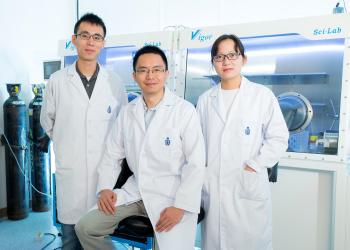
News
HKUST Finds a New Material System that Opens a New Era for Organic Solar Cells
Researchers at The Hong Kong University of Science and Technology (HKUST) have discovered a novel material system that would revolutionize the future development of Organic Solar Cells (OSCs). OSCs based on this new material system have demonstrated ultrafast and efficient charge separation despite a nearly zero charge separation driving force, meaning that the more environmentally-friendly OSCs may be able to perform as good as inorganic solar cells in the future.The breakthrough, discovered by a research team led by Prof. Henry He Yan from the Department of Chemistry, was published in Nature Energy in June.
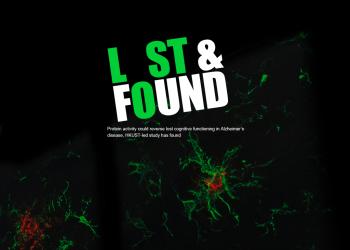
News
Lost and Found
HKUST researchers, collaborating with colleagues from Zhejiang University and the University of Glasgow, have found that the protein interleukin-33 (IL-33) reduces memory loss and other aspects of cognitive decline in conditions similar to Alzheimer’s disease (AD). With 46.8 million people around the world affected by AD and the number rising, the enormous burden on patients, their care-givers and health systems could soon be alleviated.
Mainly affecting the elderly, AD involves memory loss and impaired reasoning, judgment and movement. Research team leader Prof. Nancy Ip, Dean of Science, Director of the State Key Laboratory of Molecular Neuroscience and the Morningside Professor of Life Science, described the disease as an “urgent health threat”, particularly in Hong Kong with its rapidly aging population.
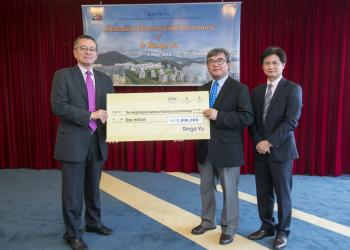
News
HKUST Leads Research Project to Mitigate the Risks and Damage of Landslides in Hong Kong
The Hong Kong University of Science and Technology (HKUST) is leading a multi-disciplinary team comprising engineers, computer scientists, environmental scientists and ecologists from various universities and institutions, to study the mechanism of debris flow in efforts to mitigate the risks and damage of landslides in Hong Kong.

News
Getting a Good Night’s Sleep
Sleep plays a vital role in good health and well-being. There are several factors that could affect the quality of your sleep. Among all, snoring can affect the quality of your sleep and that of your family members and roommates. A HKUST professor recently invented an adjustable pillow to monitor sleep quality, helping people sleep well without interruptions.
According to Professor Zhang Qian, Tencent Professor of Engineering and Chair Professor of the Department of Computer Science and Engineering at HKUST, snoring could indicate sleep apnea. More than 3,000 people worldwide die of sleep apnea-related issues every day.
More than 90% of people who snore have breathing issues at night and could develop sleep apnea, which is a sleep disorder in which a person has one or more pauses in breathing or shallow breathing while asleep.
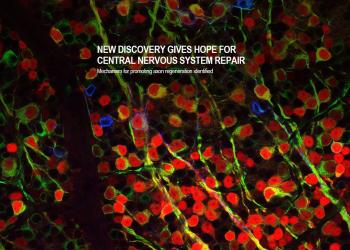
News
New Discovery Gives Hope for Central Nervous System Repair
HKUST scientists along with colleagues from the Institute of Neuroscience in Shanghai and Sun Yat-Sen University in Guangzhou have discovered a strategy for repairing injured neurons through the regeneration of axons, a normally rare occurrence. This raises the exciting possibility of reversing injuries to the central nervous system.
Led by Dr. Kai Liu, Assistant Professor at HKUST’s Division of Life Science, the team recently demonstrated that damaged optic nerves that transmit visual information from neurons in the eye to other neurons in brain could regenerate when treated with either an optical or a chemical stimulant. In mouse experiments they achieved this through the overexpression of both the light-sensing molecule melanopsin and that of Designer Receptor Exclusively Activated by Designer Drugs (DREADD), a tool normally used to enhance neuronal activity.
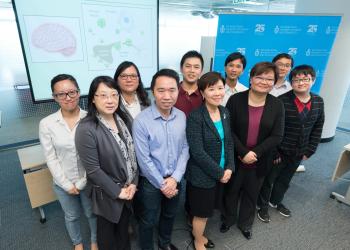
News
Breakthrough Discoveries at HKUST Offer New Hope for Treatment of Alzheimer's Disease
A research team led by scientists from the Hong Kong University of Science and Technology (HKUST) has discovered that a protein found in the human body could be potentially developed as an effective treatment for Alzheimer’s disease (AD).
The team, led by Prof Nancy Ip, Dean of Science, Director of the State Key Laboratory of Molecular Neuroscience and The Morningside Professor of Life Science at HKUST, in collaboration with Prof Eddy Liew from the University of Glasgow and Prof Baorong Zhang from Zhejiang University, has found that the protein interleukin-33 (IL-33) ameliorates cognitive decline and Alzheimer's disease-like pathology. The groundbreaking study was conducted at HKUST and the results have just been published in the prestigious scientific journal, Proceedings of the National Academy of Sciences USA (PNAS).

News
HKUST Scientists Discover New Measures to Facilitate Neural Repair
Damage to axons in the central nervous system (CNS) typically results in permanent functional deficits. If injured neurons can regenerate sufficient number of axons, the CNS may recover and overcome such functional deficits. A research team led by Prof Kai Liu, Assistant Professor from the Division of Life Science at the Hong Kong University of Science and Technology (HKUST), has recently discovered a novel strategy to promote axonal regeneration of injured neurons, which could inspire new directions for CNS repair research, including spinal cord injuries. The findings were published in the journal Proceedings of the National Academy of Science on 16 February 2016.






